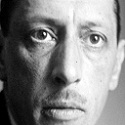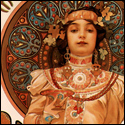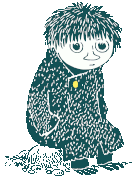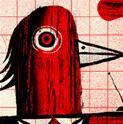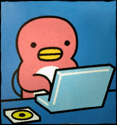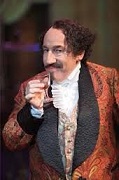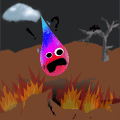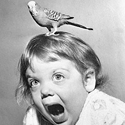|
Other than the history book thread, there really isn't a place to discuss nonfiction. Now there is. So lets post about reading old dead dudes' thoughts on Marxism or books about sexism or whatever. I'm about to read Delusions of Gender by Cordelia Fine and Gothic Arches,Latin Crosses Anti-Catholicism and American Church Designs in the Nineteenth Century by Ryan K Smith. What about you?
|
|
|
|

|
| # ? Apr 19, 2024 01:26 |
|
I've been on a biography kick the last little while, right now I'm reading the first volume of Robert Caro's biography of LBJ: The Path to Power. I went into this expecting a well-researched book, but I'm pretty blown away by the sheer amount of reporting legwork that went into this: the sources and notes at the back is easily a 100 pages, covering everything from letters to oral histories to interviews. All that work gives the biography a ton of detail, not all of it pleasant (Caro's supposedly banned from the Johnson Presidential Library). One example: as a young man, Johnson was a bit of an arrogant twat, arrogant and full of boastful lying to his peers and a shameless suckup to anyone who could give him power (professors, the dean, etc). Still, I'm in awe of his political acumen; even as one of the most unpopular people on campus, he was able to not just organize a campaign to get himself elected for a three-month term, but to steer groups of people into working for his aims without them even noticing. He also blackmailed at least one person out of running, too. The sheer naked ambition of the guy is something to behold: he knows what he wants and isn't stopping at anything to get it. It's going to be a long read - I'm only about a third into the first of four books - but I'm enjoying it, it reminds me a lot of a less frantic version of Richard Ben Cramer's What It Takes, one of my favourite political biographies. While I'm on the topic, has anyone here read Mike Royko's Boss: Richard J. Daley of Chicago?
|
|
|
|
I'm on the third of Caro's LBJ series, and as said above it's an amazing work that offers a lot of insight. Caro's biography of Robert Moses is really fascinating as well. Moses's image was starting to crack before Caro's bio of him, but Caro did a lot to dispel any illusions the public had about the man. In both cases, Caro does depict complex men very well. Both LBJ and Moses were ruthlessly effective and did a lot of positive things, but they destroyed lives (and in Moses's case whole neighborhoods) on a whim. Moses's goals were ultimately misguided and may have set NYC back, but there still remains the question of if another man would have done what Moses did if he hadn't been there. I also started The Sleepwalkers: How Europe Went to War in 1914. It's slow progress now that my classes resumed, but it's a intricate account of the factors that led to the war and faulty decision making. Serbian assassin guilds, Otto von Bismarck's capriciousness and so on.
|
|
|
|
|
Most of the non-fiction I read is biographies; of those, probably my all-time favorite is Edmund Morris' three-volume life of Theodore Roosevelt (Theodore Rising, Theodore Rex, Colonel Roosevelt). They're all excellent but of the three the volume covering his path to the White House is most interesting and the one covering his decline presents the most compelling character study. Other interesting biographies on my shelf: Iron & Silk by Mark Salzman, about a young white-boy American who moves to China to learn traditional martial arts; Captain Sir Richard Francis Burton, by Edward Rice, a detailed biography of the Victorian-era british explorer who made the pilgrimage to Mecca in disguise, first translated the Kama Sutra into English, etc.; Hawkwood: Diabolical Englishman by Francis Stonor Saunders. Hawkwood was a 14th-century English mercenary captain who was active in France and Italy; his exploits have been fodder for many later authors, including Arthur Conan Doyle. The White Horse King: The Life of Alfred the Great by Benjamin Merkle. This book is general-audience, not scholarly, but not dumbed-down either and does a good job of fleshing out the time period and society surrounding Alfred, not just the man himself. I'm also working through The Landmark Arrian. Arrian was 1st/2nd century AD Roman general who wrote what's probably our most comprehensive surviving biography of Alexander the Great; he had access to a lot of period sources now otherwise lost. The Landmark editions are, as always, amazing, with ten or more footnotes on every page and detailed maps so you can follow Alexander's wars every step of the way. I'm a the depressing part now though where Alexander is about to die so I've kinda paused in my reading. Beyond biography I've read two other non-fiction books recently. The first one was The Reign of Arthur: from History to Legend by Christopher Gidlow. The general academic view of "King Arthur" has been that there's so little evidence that we essentially ahve to consider him fictional. There are lots of popular-audience books defending one or another "Historical Arthur" thesis, but they're almost universally utter bullshit of the "well, what if x actually means y" purely speculative variety. Gidlow's basic thesis is that even though there are only two or three (depending on how you count) period references to Arthur that we have records of, those are enough to at least establish that there was probably someone named Arthur who 1) was a war leader of the Celtic Britons sometime a generation or two after Rome left the island, and 2) had some major victories against the Saxons. The standard "anti-arthur" argument is that those few references to Arthur are clouded with vaguely mythic-sounding references and thus untrustworthy, but Gidlow points out that academic consensus has accepted far worse evidence for many other post-Roman kings. From there he argues that the academic consensus against a historical Arthur is mostly bias, and that even if we can't say much about Arthur, the balance of the evidence indicates at least in favor of his existence. The real virtue of this book is that Gidlow really knows his source material cold -- he's read them in the original and is familiar with the different variant surviving copies and is able to analyze them in historical context. That right there is enough to discount and dismiss 95% of the popular-audience arguments (for example, one popular critique of the historical Arthur theory is that a contemporary chronicler, Gildas, doesn't mention him by name; Gidlow points out that Gildas uses almost no proper names in his entire manuscript. Conversely, many pro-Arthur theories rely on 12th-century "Saint's Lives" documents; Gidlow dismisses them all as mostly useless concoctions written by monasteries to document their land rights). Overall this is one of the best books I've read if you're interested in this sort of thing -- does a good job of presenting the actual historical evidence to the layman without bullshit or worthless speculation. The other really interesting nonfiction book I've read lately was The Burglary: The Discovery of J. Edgar Hoover's Secret FBI by Betty Mezger. It's primarily a history of the 1970's burglary of the FBI offices by peace activists that (directly or indirectly) revealed all the exploits and abuses of Hoover's FBI -- COINTELPRO, etc. It gives the story of the event from the viewpoint of the burglars themselves (who have finally come forward) and the investigating agents. If you've been following the NSA scandal and Snowden's revelations it's a must read; the historical parallels are overwhelming. As a net effect the book ends up making a very strong case that the problems Snowden revealed aren't modern accidents, but endemic to the very structure of America's intelligence agencies. Hieronymous Alloy fucked around with this message at 18:32 on Mar 2, 2014 |
|
|
|
|
Stravinsky posted:Other than the history book thread, there really isn't a place to discuss nonfiction. Now there is. So lets post about reading old dead dudes' thoughts on Marxism or books about sexism or whatever. Delusions of Gender is really excellent, good choice. I'm reading The Myth ogf Mental Illness by Thomas Szasz and I personally think it is mostly bunk but it is good and thought provoking bunk. Everybody go read it if you ever think about mental illness at all.
|
|
|
CestMoi posted:Delusions of Gender is really excellent, good choice. I'm reading The Myth ogf Mental Illness by Thomas Szasz and I personally think it is mostly bunk but it is good and thought provoking bunk. Everybody go read it if you ever think about mental illness at all. Oh! Oh! If you're interested in that kind of topic, Crazy: A Father's Search Through America's Mental Health Madness by Peter Early is a really comprehensive investigation of all the different problems with America's mental health system. Only flaw is it's from 2007 so slightly dated. On the whole though I can't recommend it highly enough. Hieronymous Alloy fucked around with this message at 18:41 on Mar 2, 2014 |
|
|
|
|
It may be better for D&D, but I really enjoyed The New Jim Crow: Mass Incarceration in America, which was an interesting deconstruction of the way that drug enforcement policy is deferentially applied across racial lines in the US and the miserable consequences of being on the wrong side of that difference.
|
|
|
|
Stephen Jay Gould, Wonderful Life: The Burgess Shale and the Nature of History was a great read. Reading on understanding processes in science is always great, also when the focus is on small Cambrian fossiles. SJG was a hero of mine, but I kind of get bored from his longer texts. Susan Sontag, Regarding the pain of others is a short book about how we view suffering. A really great read. Haruki Murakami, What I talk about when I talk about running is so-so when compared to his novels, but still somewhat inspirational. I have no clue what inspirational athlete's books would read like in comparison. Atul Gawande, Complications on complications in medicine is an important book on safety especially in surgery, but I also found plenty to take with me in haematology. Edward Said and Ian Buruma, Occidentalism: The West in the eyes of its enemies was an eye-opener and really worth a read. Directly connected I own, but haven't yet read Said's Orientalism (and would also consider Amin Maalouf The crusades through arabisk eyes, which is also on my shelf). How things are: a science tool-kit for the mind (ed. John Brockman and Katinka Matson) was a favourite read and gift for friends for many years. It consists of a series of small essays on different subjects in science. Authors include Freeman Dyson, SJG, Niles Eldredge, P.W. Watson, Lynn Margulis etc. Buy it!
|
|
|
|
Not enough. Besides the current book of the month, Surely you're joking Mr. Feynman": - The Poisoner's Handbook: Murder and the Birth of Forensic Medicine in Jazz Age New York. By Deborah Blum. Quite interesting book but a bit repititive and nothing truly sensational. It's just a nice story of how a bunch of medical examiner's that had a profound impact on forensic science combined with some random stories of poisoner's and people getting poisoned. None of the crime stories are told in a whodunit way. - A Short History of Nearly Everything. By Bill Bryson. Really good popular science book. Most science facts I already knew due to being a scientist myself, but the stories behind some scientists were worth it alone and I did learn plenty of things still simply because of how broad it is. It won't change your way of thinking, but it's still a nice collection of wacky things that really happened and how they effected the world. - The Disappearing Spoon. By Sam Kean. Meh. Tries to be "a short history of nearly everything" just for chemistry but it was pretty tame. Informative for sure and plenty of interesting facts, but no stories you can tell to your (science inclined) friends over a beer. - Moonwalking with Einstein: The Art and Science of Remembering Everything. By Joshua Foer. Very nice book and of all the non-fiction books probably the one I talked about most with my friends afterwards. It's not a guidebook on how to memorize stuff, so you should not expect that, rather it's the story of a journalist investigating the scene and describing some colourful/cool/unbelieable weird guys either involved in the scene or of the rain-man type as well as some explanation of how everything is done. Nothing revolutionary and nothing that will change your worldview, but a very enjoyable read nonetheless. - Guns, Germs, and Steel: The Fates of Human Societies. By Jared Diamond. I read it a long time ago so my memory of it is a bit fuzzy. I'm a bit concerned about the accuracy of his theories and have my doubts about how true everything is. It's a nice book to get somebody interested in antrophology, a field that really seems to lack good introductory books that are actually accurate. There are probably some others I forgot to mention. Anyway, can I request nonfiction books here? If so, things I'd like to read: - a short, introductory text (assuming no psychology background) on how to help people with depression. - a book on social engineering and/or cold reading. If possible, it should be entertaining and not just informative (read: contain true stories of succesful applications of these things). Please no "here's how to manipulate/pick-up women" crap.
|
|
|
|
Right now I'm reading Myra Jehlen's Five Fictions in Search of Truth. There's a bit in the introduction about Flaubert including an aqueduct in a realist depiction of ancient Carthage (which had none), and it seems to address every "tactical realism" argument or discussion ever that they have in Cinema Discusso:quote:“His invention implemented the real; it was as real as the real, as true as the truth, maybe more so. He was not making an extravagant claim" (6). Request! I'm looking for something accessible yet somewhat academic or written by an academic about the ways in which we distance ourselves from suffering (a treatment of the old expression, "out of sight, out of mind," basically). Like, there is suffering in the world we know about, and consciously we feel "bad" about it, but nonetheless we are able to get on with our day. Discussions of this kind of thing also now often come up a lot with animal suffering, as in the common story of the person who visits a slaughter house or factory farm and immediately gives up eating all animals, with no problems. Zizek talks about a similar kind of thing when he talks about poo poo and toilets, but, uh, I want something other than that.
|
|
|
|
I enjoyed Delusions of Gender but I wonder if anyone is really swayed by it's arguments. Even if it is preaching to the choir, it's nice to have such an extensive list of the research done on gender difference. I've been trying to read a lot more nonfiction lately, in part to fill in the wide gaps I have in knowledge, as well as a break from reading some really disappointing fiction. Recent standouts have been: 1491: New Revelations of the Americas Before Columbus by Charles C. Mann. The author clearly states his bias, but I didn't really mind. It's a far more extensive look at the Americas than I've ever been exposed to. And it helps understand - even a little bit - just how much was lost. Factory Girls: From Village to City in a Changing China by Leslie T. Chang. Like 1491, the author lets her personal views and life seep into the narrative she constructs from the interviews and interactions with these women. But I don't know, I kind of prefer that than a completely distant account. It's very readable. I really want to find more stuff like it: books about the lives people are experiencing in the present as opposed to something focused on the past. Foolie posted:It may be better for D&D, but I really enjoyed The New Jim Crow: Mass Incarceration in America, which was an interesting deconstruction of the way that drug enforcement policy is deferentially applied across racial lines in the US and the miserable consequences of being on the wrong side of that difference.
|
|
|
|
DirtyRobot posted:Request! I'm looking for something accessible yet somewhat academic or written by an academic about the ways in which we distance ourselves from suffering (a treatment of the old expression, "out of sight, out of mind," basically). Like, there is suffering in the world we know about, and consciously we feel "bad" about it, but nonetheless we are able to get on with our day. Discussions of this kind of thing also now often come up a lot with animal suffering, as in the common story of the person who visits a slaughter house or factory farm and immediately gives up eating all animals, with no problems. Zizek talks about a similar kind of thing when he talks about poo poo and toilets, but, uh, I want something other than that. Susan Sontag's Regarding the pain of others, which I mentioned above but didn't describe much, is a good read on the subject. Books on coping/defense mechanisms may be of help too, but I have no idea which.
|
|
|
|
rasser posted:Susan Sontag's Regarding the pain of others, which I mentioned above but didn't describe much, is a good read on the subject. Books on coping/defense mechanisms may be of help too, but I have no idea which. Thanks! I'll check it out based on this.
|
|
|
|
I'm currently reading through Jung Chang's Wild Swans. More than half way done with it and I'm really enjoying it. I don't tend to read a lot of biographies or autobiographies, nor do I know much about 20th century China. Chang tells the stories of her grandmother, her mother, and herself, and it helps to ground the history of the country in the family's own history. I'm wondering if anyone has recommendations for similar books that are kind of like generation-memoirs?
|
|
|
|
I'm currently going through an anthology, Who Should Be First? Feminists Speak Out on the 2008 Presidential Campaign. It's about the intersection of race and gender during the Democratic primary and Obama's election. I'm familiar with many of the arguments made so I'm treating it as a tine capsule and a rough way to see how attitudes towards them both changed over the course of the primary.
|
|
|
|
I'm about a third of the way through David S. Reynolds's Walt Whitman's America: A Cultural Biography. The main premise of the book being that Walt Whitman's stated goal was to speak for America, and so to understand his poetry it's good to take a look at which aspects of American culture he absorbed and how well he articulates them. It breaks down different facets like politics, gender relations/sex, popular entertainment, religious movements of the time, the state of scientific understanding. So far its a good read and I'm enjoying it. Its been sitting on my shelf since I read Emerson: A Mind on Fire which I also really loved. That book however was more focused on the details of Emerson's life, whereas as Walt Whitman's America is more focused on Whitman's context. Which also means you get an interesting look at the early history of New York. I also just started Foucalt's A History of Madness since we're starting a small discussion group on it in SAL. Only through chapter one. Its interesting but a little dense. I don't know how much of that is the translation and how much of that is Foucalt.
|
|
|
|
Just finished Francis Fukuyama's The Origins of Political Order. I like this quite a bit. It examines the core requirements for establishing political order (which Fukuyama sees as the rule of law, government accountability and a strong state). There's a couple of cool things going on here, as it examines China, India and the Islamic world in preference to a European focus. Fukuyama's a cheerleader for the West, so it shouldn't be a surprise he finds these models wanting, but the contrast is interesting. It's also cool because Fukuyama steps outside his ordinary discipline so you get some interesting infodumps on things like anthropology. He's an engaging writer and it moves along pretty fast. Highly recommended for anyone with a passing interest in geopolitics.
|
|
|
|
Yiggy posted:I also just started Foucalt's A History of Madness since we're starting a small discussion group on it in SAL. Only through chapter one. Its interesting but a little dense. I don't know how much of that is the translation and how much of that is Foucalt. The version I have is probably the most intimidating book I own. It has a foreword, an introduction, the original preface to the 1961 edition and the changed preface for the 1972 edition and each one (except maybe the 1972 preface) is more dense than most whole books. The 1972 preface is Foucault trying to justify writing a preface to a book 10 years after the main text is written and he concludes that he shouldn't.
|
|
|
|
ModernPrometheus posted:I enjoyed Delusions of Gender but I wonder if anyone is really swayed by it's arguments. Even if it is preaching to the choir, it's nice to have such an extensive list of the research done on gender difference. I just finished it, and while it is really well put together and had it's arguments clearly put out with evidence, I really do not think it would convince people who put a lot of stock into gender differences. My main problem with the book was that I have an older edition that is missing the chapter on the differences between gamer girls and true gamers. I also finished my ant-Catholicism in the US and how it affected church designs book which was really neat. It was fun to see how over time many protestant churches started adopting catholic designs to try and retain members and possibly to sway immigrants (who were largely catholic at the time) away from the allure of the roman church even while fearmongering and being disdainful of roman practices and idolatrous images.
|
|
|
|
I'm currently reading Perfecting Sound Forever by Greg Milner which is basically a history of recorded music and how music itself and its role in society has changed due to the nature of recording technology, record companies, etc. It's very good. The last really good non-fiction book I read before that was You Can't Win by Jack Black, who was a hobo and petty criminal at the turn of the 20th century who was based largely in San Francisco but roamed all over the American west. It's a fascinating book that explains a lot about the criminal underworld and hobo societies of that time, and it was a major inspiration to William S. Burroughs. I'm also occasionally reading from Escape Velocity which is a collection of writings by Charles Portis, both fictional short stories and non-fiction from his journalist career. Most recently I read a piece he wrote in the early 60's on the history of country music and the development of the recording and live music industry in Nashville, it was great, just as entertaining as his fiction. I'm also reading Nikita Kruschev's memoirs although their status as non-fiction is not entirely certain. Earwicker fucked around with this message at 21:31 on Mar 13, 2014 |
|
|
|
Thinking, Fast and Slow, by Daniel Kahneman, is the culmination of decades of research, and it's one of the most amazing books I've read on how the brain works. Kahneman and his research partner Tversky are also pretty important guys, I've even seen their work referenced in Computer Science papers, of all things. Halperin/Heilemann's duo of Game Change books are very indepth narratives on the last two american presidential elections, and despite their often overelaborate prose, are good reads. Also there're a bunch of good nerd poo poo books like Marvel Comics: The Untold Story, The Death of WCW (new one coming out this year) and Shett's Game Over which showcase some amazing meltdowns and fuckups if you're into those subsections of pop culture. Brief History of Time, Surely you're Joking, Mr. Feynman! and The Elegant Universe are some fun physics-related books and not very hard to grasp... also Karen Armstrong's books on religion which I really need to get around to reading more of.
|
|
|
KoldPT posted:Thinking, Fast and Slow, by Daniel Kahneman, is the culmination of decades of research, and it's one of the most amazing books I've read on how the brain works. Kahneman and his research partner Tversky are also pretty important guys, I've even seen their work referenced in Computer Science papers, of all things. Thinking sounds very interesting and this reminded me to actually put the Game Change books on my to-read list. Thanks!
|
|
|
|
|
I guess I'm pretty drat goony in the non-fiction department. I've mostly read a whole lot of well-known stuff like Anne Frank's diary, Richard Dawkins, Carl Sagan, history books and such. I did read John Dewey's Experience and Education, which is a really interesting read if you're into paedagogical studies. For my part it did a whole lot to make me get that much closer to Dewey's views than a third-, fourth- or fifth-hand account in some paedagogical psychology book ever could. Highly recommended. I'm thinking of diving into Paedagogy of the Oppressed by Paulo Freire sometime. in the biography department, I've got the autobiography of Malcolm X in my reading queue, as well as the Feynman biography that's currently a TBB book club. Any other biographies that are worth reading that I should get into at some point? ulvir fucked around with this message at 23:15 on Mar 21, 2014 |
|
|
|
ulvir posted:in the biography department, I've got the autobiography of Malcolm X in my reading queue, as well as the Feynman biography that's currently a TBB book club. Any other biographies that are worth reading that I should get into at some point? Strange Fascination by David Buckley is a very enjoyable biography of David Bowie, though obviously rather incomplete given Bowie's recent career reboot. I think the most recent edition is from 2010 and covers everything up through Reality.
|
|
|
|
sadly, these non-fiction threads don't seem to take off or last very long, which is a shame because there is a lot of good stuff out there. One of my personal reading goals for the year is to signficantly increase the amount of non-fiction I read. I've tackled about 15 NF books so far this year. There isn't much rhyme or reason to what I pick. My library has a huge digital selection of e-books and audiobooks and so I just pick stuff out of their lists when something catches my eye. just finished "Masters of Deception: The Gang That Ruled Cyberspace" which wasn't amazing, but it was still pretty interesting. I seem to enjoy the subject even though my understanding of computers is insanely limited. "Ghost in the Wires" by Kevin Mitnick is pretty good, if you can stand how arrogant and smug he is. Jon Ronson has some really interesting stuff. The Psychopath Test was good, but Lost at Sea was probably much better. A bunch of shorter journalism pieces about fascinating subjects. Ben Mezrich's SEX ON THE MOON is a must read, mindboggling that most people don't even know about one of the most insane heists of all time. If you are the least bit interested in true crime, "The Monster of Florence" by Douglas Preston was outstanding. I'm pretty sure somebody is trying to make it into a movie (George Cloony?) It's not so much the story of a serial killer, but a story about how grossly incompetent police officers turned it into a witchhunt. At one point, the writers of the book are investigated as suspects in the case.
|
|
|
|
I just recently read Jim Henson's biography. It was really a happy book right up until his death. I've never seen a man live out his dream and really become successful doing it. I have a lot planned out for the rest of the year, mainly because I feel that I don't read a lot of nonfiction. 1) Two Years before the Mast 2) The Jungle 3) MFA vs NYC 4) The Best American Sports Writing 2013 5) The Best American Travel Writing 2008 6) The Best American Travel Writing 2010 7) Into the Wild 8) Supergods 9) When You are Engulfed in Flames 10) Stranger Than Fiction 11) I Dreamed I Was a Very Clean Tramp 12) The Monuments Men 13) Manhood for Amatures 14) Shadows of the Dark 15) Weird Encounters 16) Extranordnary Groups 17) Everyone Loves You When You're Dead 18) Moonwalking with Einstein 19) Poseur 20) Spike, Mike, Slackers and Dykes 21) The Way West 22) Lost and Found Mind you there's four fiction books in between four nonfiction books.
|
|
|
|
I'm currently reading Gang Leader for a Day by Sudhir Venkatesh, it's by a dude who grew up in middle class southern California and then went to grad school in Chicago to study sociology, became interested the poor black neighborhoods that surrounded the school and decided to focus on studying them, and then wound up becoming friends with a gang leader in the projects where he was essentially "embedded" in a way that is fairly rare for sociologists and allowed him to have a lot of very direct involvement and observation. Really interesting book that focuses a lot on the relationship between the gang and the non-gang residents of the projects and how they rely on and feed off one another.
|
|
|
|
Roydrowsy posted:If you are the least bit interested in true crime, "The Monster of Florence" by Douglas Preston was outstanding. I'm pretty sure somebody is trying to make it into a movie (George Cloony?) It's not so much the story of a serial killer, but a story about how grossly incompetent police officers turned it into a witchhunt. At one point, the writers of the book are investigated as suspects in the case. Yes! I read this a couple of years ago and really liked how the book was more of a reflection on the unchanging nature of the Italian criminal justice system. Douglas Preston also did a fantastic job of describing the players in this story as if they were his fictional characters. Authors tend to skip these descriptions when referring to real people. The original publication of this novel also coincided with the beginning of the Amanda Knox case, so if that drama interests you at all, this book shines new light on the situation. screenwritersblues posted:I just recently read Jim Henson's biography. It was really a happy book right up until his death. I've never seen a man live out his dream and really become successful doing it. I loved this book. I had been waiting a long time for a complete biography of Jim Henson. He's been one of my role models. This book is heartwarming and despite how I cried like a child throughout the chapter about his death and subsequent memorial, it was a great life to share in. Recommended for anyone who was touched by his work. And as I see what the rest of you all are reading, it makes me feel inferior. This year I've read so much pop culture: Lean In by Sheryl Sandberg, The Mad Sculptor by Harold Schechter (True crime from the 1930s) and The World According to Mister Rogers. And my next planned non-fiction is going to be Ninja by John Man. Last year I pretended to be a little more scholarly by reading The First Muslim by Lesley Hazelton, My Beloved Brontosaurus by Brian Switek, and Moby Duck by Donovan Hohn. But those can easily be overlooked since I also read Hyperbole and a Half by Allie Brosh and Let's Explore Diabetes with Owls by David Sedaris. I apparently enjoy being informed, but I want to be entertained while doing so.
|
|
|
|
Earwicker posted:I'm currently reading Gang Leader for a Day by Sudhir Venkatesh, it's by a dude who grew up in middle class southern California and then went to grad school in Chicago to study sociology, became interested the poor black neighborhoods that surrounded the school and decided to focus on studying them, and then wound up becoming friends with a gang leader in the projects where he was essentially "embedded" in a way that is fairly rare for sociologists and allowed him to have a lot of very direct involvement and observation. Really interesting book that focuses a lot on the relationship between the gang and the non-gang residents of the projects and how they rely on and feed off one another. i am pretty sure i listened to a This American Life episode about this guy. it would have been quite some time since I heard it, but it was pretty fascinating how he was able to insert himself into that world so easily. I'll have to put this on a to-read list.
|
|
|
|
I just finished The Gnostic Gospels, by Elaine Pagels. Fascinating overview of the early Christian church's philosophical divisions. I can kind of see where both sides are coming from, to a certain degree. I'm a former believer and I remember the mind-set I had and the absoluteness of my beliefs, but now I can sympathize with and understand the gnostic point of view as well. Not that they didn't believe in god, but rather the non-literal, self-centric approach many of their teachers took. Ultimately it's kind of sad though; so much strife between these factions who shared such a strong, core belief. I am looking forward to reading more church history, although I think more detail next time.
|
|
|
|
Fellwenner posted:I just finished The Gnostic Gospels, by Elaine Pagels. Fascinating overview of the early Christian church's philosophical divisions. I can kind of see where both sides are coming from, to a certain degree. I'm a former believer and I remember the mind-set I had and the absoluteness of my beliefs, but now I can sympathize with and understand the gnostic point of view as well. Not that they didn't believe in god, but rather the non-literal, self-centric approach many of their teachers took. Ultimately it's kind of sad though; so much strife between these factions who shared such a strong, core belief. I am looking forward to reading more church history, although I think more detail next time. This! I was raised as an atheist and while this book has done nothing to make me doubt belief in a god (Either you have it, or you don't, or you struggle with it. I just don't have it) it has shown me how church dogma were formed out of politics and necessities. I find it slightly amusing that the penitent and pauperish christianity I've witnessed in a Lutherite country is just reflecting the repressions of christians in the late Roman Republic. I guess I'd like to read the gospels of Thomas and of Mary Magdalen, but sadly much of this literature has been translated into Danish by non-scholars and put on shelves next to incense, crystals and glas beads.
|
|
|
|
poo poo, I can't believe I overlooked this thread for a month, especially with one of my reading goals being more non-fiction (although I pulled a ton of recommendations from the history thread for that which is rad). I just finished reading On the Road to Freedom: A Guided Tour of the Civil Rights Trail and I am finishing up The Big Short: Inside the Doomsday Machine. On the Road to Freedom was super interesting although I wish it had been more focused and less general (there are a lot of good stories but it doesn't dig deep into anything). At first I didn't like the narrative framework of a tour through famous CIvil Rights landmarks but I actually started to appreciate it later on as it was used to break up the chronology of some of the stories (since a lot of things would start in one city/state and end in another). The best were the quotes from the individuals who lived these stories, and I would have loved to read even more of those. The Big Short is a pretty good look into the 2008 financial crisis from the point of view of different investors who made money by betting against subprime mortgages. My main complaint is that it works a little too hard to glorify a group of people for knowing that the collapse was coming and essentially choosing to profit from it instead of trying to stop it. Obviously he does point out instances where they did try to warn people and they weren't listened to, but these guys still come off pretty sleazy themselves at certain points. This and a few of Lewis's other books (including Liar's Poker which is also about his time on Wall Street) are available as part of the Amazon Prime Kindle Library deal, so I will probably check out more of his stuff. Stravinsky posted:I just finished it, and while it is really well put together and had it's arguments clearly put out with evidence, I really do not think it would convince people who put a lot of stock into gender differences. While I don't think it would convince people who are extreme in their conviction (and honestly what ever does change the minds of zealots) I feel like it attacks that sweet spot of people who take this poo poo for granted because it's just common knowledge. I especially like the way she goes through the history of gender studies in science to prove the point that scientists have repeatedly worked backwards from "we know women are intellectually inferior, so let's see why - probably has something to do with head size". I also like how "women are dumber than men" gradually became "women's brains are better suited to different skills (but def not math you bimbos lol)".
|
|
|
|
I read (audiobook'ed) John D. Rockefellers biography, I found it interesting given that he's still the richest person ever to have lived.
|
|
|
|
Earwicker posted:
Funny coincidence, I'm almost done reading Call Me Burroughs, which definitely mentions this book. It's a pretty illuminating illustration of his life and the beat movement, and presents the author as a brilliant but troubled individual. His work continues to fascinate. Paul Bowles comes across as just a complete dick, for example.
|
|
|
|
I just finished James Randi's Faith Healers, in which he recounts his work investigating evangelists who rake in hundreds of thousands if not millions of dollars through deception and fraud. And as much as I respect and applaud him and his work, the book fell flat with me. It just got to the point where so many of them have the same tricks and end up spending their ill-gotten gains in the same ways that it drones on for quite a bit. And it didn't help that most chapters are dedicated to individuals. My favorite parts dealt with Don Henvick, one of Randi's pals that would trick evangelists into "healing him". He even ended up fooling the same evangelist multiple times under different disguises and getting "healed" of completely different ailments he never knew he had. But these parts where few, far between, and not enough to make other parts more tolerable. Also Randi is a douche. In the last chapter he insinuates custodial staff at churches and theaters where these televangelist performances occur are drug addicts simply because he never found illegal drugs among the legal prescriptions tossed out after shows (Audience goers who think they're being healed throw their medications away). For all the pushing for evidence and such he could've at least stopped himself and maybe asked why he hasn't ever even seen illegal drugs being thrown away at any of the shows he attended as a spectator. Lead Psychiatry fucked around with this message at 12:02 on Apr 4, 2014 |
|
|
|
Lead Psychiatry posted:Also Randi is a douche. In the last chapter he insinuates custodial staff at churches and theaters where these televangelist performances occur are drug addicts simply because he never found illegal drugs among the legal prescriptions tossed out after shows (Audience goers who think they're being healed throw their medications away). For all the pushing for evidence and such he could've at least stopped himself and maybe asked why he hasn't ever even seen illegal drugs being thrown away at any of the shows he attended as a spectator. Wait, so his theory is that the custodial staff is quickly snatching up all the illegal drugs for themselves, but not the expensive prescription drugs which they could turn around and sell for a profit (or, y'know, also just get high on as well)
|
|
|
|
Guy A. Person posted:Wait, so his theory is that the custodial staff is quickly snatching up all the illegal drugs for themselves, but not the expensive prescription drugs which they could turn around and sell for a profit (or, y'know, also just get high on as well) A lot of this took place in the 70s and 80s, so I can't comment on what the black market for prescription meds was then. But the medications they'd throw away are not the kind one gets high off of, like heart medication and insulin.
|
|
|
|
I've read less non-fiction recently, but here's what I have this year: Jan Morris - Heaven's Command (book 1 of Pax Britannica trilogy) is an amazing overview of early Victorian empire, with each chapter focusing on some particular theme, incident or character from the time. The follow-up reading I've done shows that her research is considered somewhat dated now, and sometimes she focused on colourful stuff more than was necessary or advisable, but still I highly recommend the series as well written, even poetic overview of an era. Margaret Atwood - In Other Worlds: SF and the Human Imagination was pretty good collection of essays and reviews, with the main point being that SF is inherent to the human imagination, and that every utopia by definition has an opposite dystopia and vice versa. Ben Goldacre - Bad Science. I'm translating the book at the moment, but I can't say I was too impressed with it. The author seems way too eager to go on frothing rants about some particular people and 'destroy' them so thoroughly it seems quite pointless, especially for readers outside the UK. Leonard Mlodinow - The Drunkard's Walk: How Randomness Rules Our Lives is more of a historical overview of research in risk and game theory by a mathematician, but it's very good if you adjust your expectations accordingly. Phil Rees - Dining with Terrorists tells about the author's experiences with different terrorist organisations. It's quite fragmented as each chapter tells of a different country/group, but the interconnected groups can be several chapters apart. Also, he's obsessed with showing why there can't be any one definition of 'terrorism'.
|
|
|
|
I'm currently reading Castles of Steel by Robert K. Massie, all about the Naval warfare of World War One and the people behind it. I hardly ever read non-fiction, but I'm absolutely loving this. His writing style is very interesting to read and he often dips into the non-military side of things.
|
|
|
|

|
| # ? Apr 19, 2024 01:26 |
|
Detroit: An American Autopsy by Charlie LeDuff. I knew I was in trouble when the author put himself on the cover of a book about a city's downfall.
|
|
|


